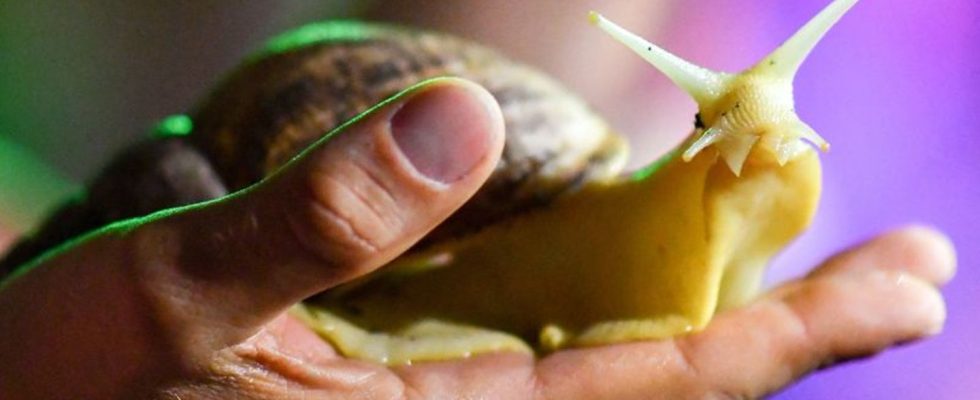University of Lausanne
Giant snails as pets can be dangerous
“Social networks are full of photos
© Jens Kalaene/dpa-Zentralbild/dpa
They are a bit scary and fascinating at the same time. Giant snails are becoming increasingly popular as pets. Now researchers are warning.
Popular species for terrariums include the large agate snail (Lissachatina fulica) or the real agate snail (Achatina achatina).
Popular on social networks
“Social networks are full of photos of people touching animals with their skin or even their mouths,” said researcher Cleo Bertelsmeier, according to a statement from the university. She teaches at the Institute for Ecology and Evolution in the Faculty of Biology and Medicine. People believed that the snail’s mucus was good for the skin. However, this poses a risk of transmission of the pathogens.
Bertelsmeier and her colleagues evaluated photos on social media to see how widespread the giant snails are as pets. Many people are not aware of the risks “that they expose themselves or their children to when they handle the snails, for example when they put them on their faces,” said co-author Jérôme Gippet.
On the invasive species list
Agate snails are voracious and reproduce quickly. The Union for Conservation of Nature (IUCN) includes it on its list of dangerous invasive species and describes it as a pest. The animals eat all kinds of cultivated plants and could threaten agricultural land and biodiversity if they spread.
In the specialist article, the team from Lausanne calls for the public to be warned about the health risks and for the trade and ownership of these animals to be regulated.

